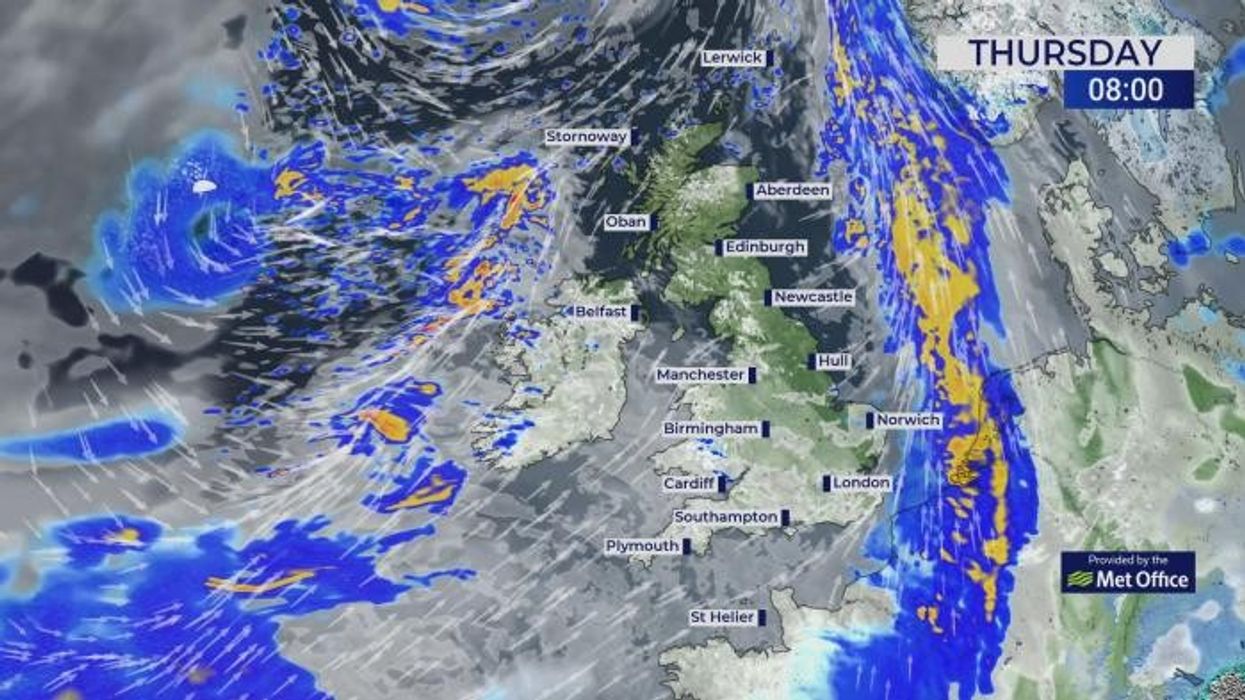US weather: Tropical storm 'locks horns' with polar winds as torrential deluge unleashed

Heavy winter downpours are forecast through the end of the week with parts of the country facing feet-deep rifts of snow
Don't Miss
Most Read
A freak late-season ‘tropical storm’ will lock horns with Polar winds crippling America to unleash a torrential deluge.
As swaths of the United States battle near-historic snowfall, a plume of warm air will barge in from the Gulf of Mexico.
Temperatures across southern states will nudge unseasonable highs as the region gets a ‘taste of summer’.
But where warm air ploughs into a freezing blast, all hell will break loose with torrential electrical downpours.
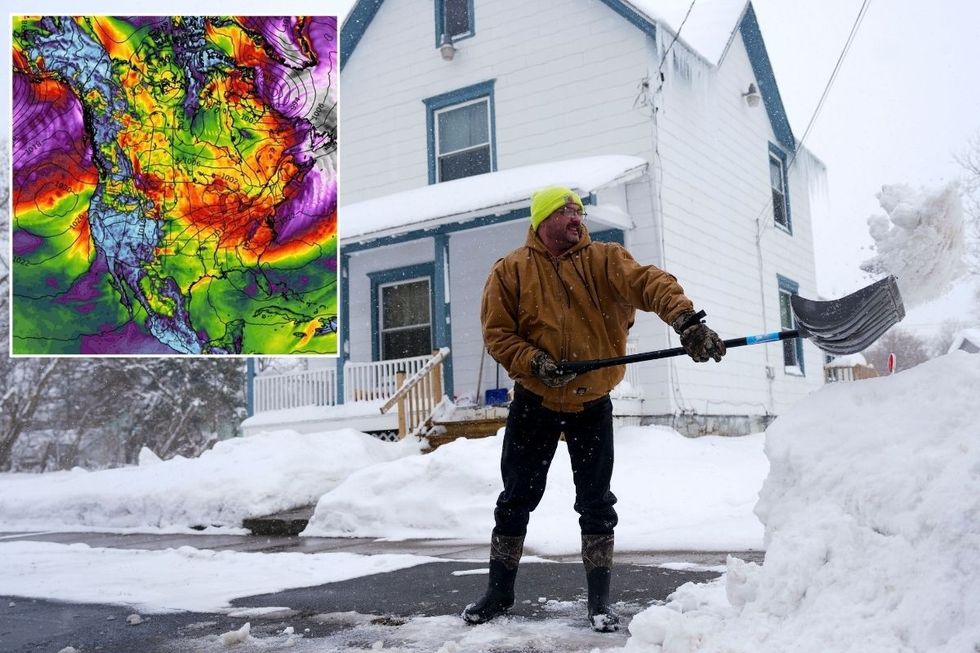
Tropical storm 'locks horns' with polar winds to unleash torrential deluge
|GETTY/WXCHARTS
Jim Dale, US meteorologist for British Weather Services, said: “A feature that looks a bit like a late tropical storm appears to be forming close to the Gulf of Mexico, and this is bringing some warmer air to the south of the country.
“It will feel like a taste of summer for some in the far south this week, although where the hot and cold air meet there will be the risk of storms.
“A low-pressure system, while not actually a tropical storm, will bring warmer air into the cold over the US later in the week, and along the boundary will be where there is a risk of heavy rain and thunderstorms.”
Temperatures through the coming days in Arizona and surrounding desert states could nudge 70F, experts say.
Further north, however, a winter ‘clipper storm’ from Canada has opened the doors to sub-zero polar winds.
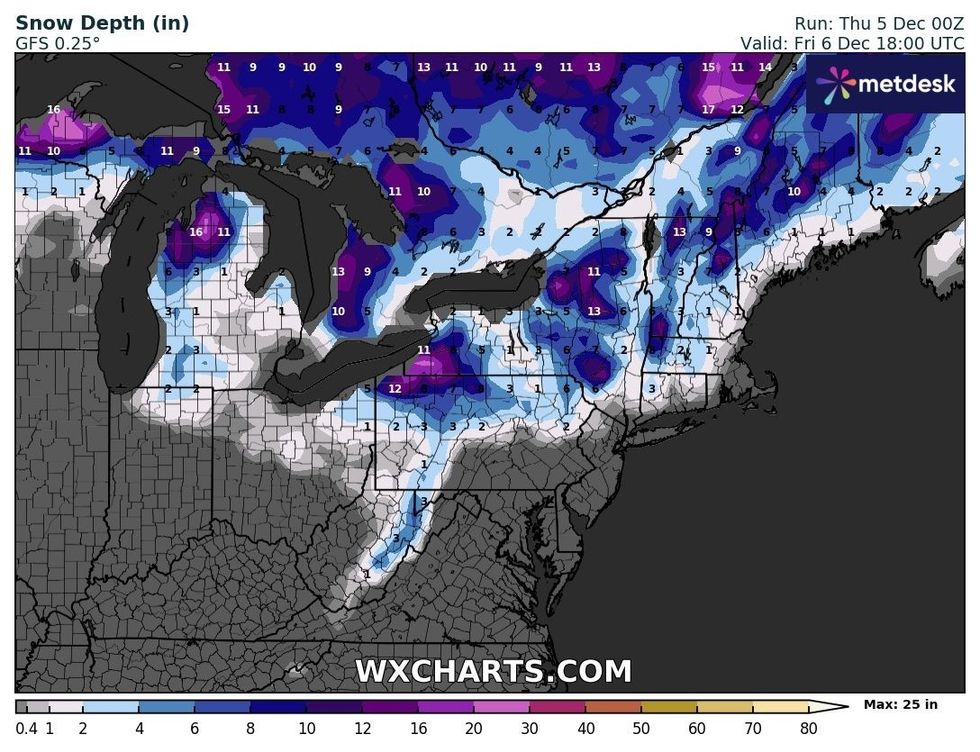
WXCHARTS is forecasting heavy snowfall
|WXCHARTS
Cold air passing over the still warm Great Lakes has unleashed a deluge of lake-effect snow.
Heavy winter downpours are forecast through the end of the week with parts of the country facing feet-deep rifts of snow.
Weather Channel meteorologist Jonathan Erdman said: “Lake-effect snow will continue to bury the Great Lakes snowbelts into late week after some areas were buried by feet of snow over Thanksgiving holiday weekend.
“Various winter weather alerts have been issued by the National Weather Service in the Great Lakes snowbelts for both ongoing snow and the next round set to arrive through Thursday.
“Snow squalls may lead to sudden, dangerous reductions in visibility and quick accumulations on dry roads, and people should keep this in mind even if driving in areas outside the Great Lakes snowbelts.”
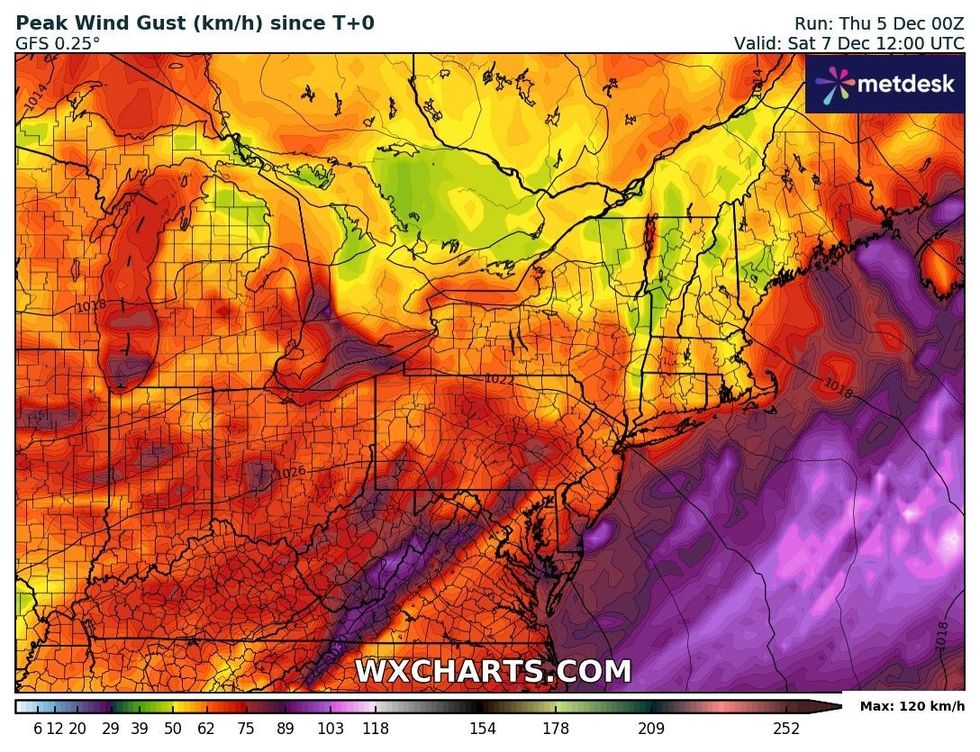
Peak winds across the US, on WXCHARTS
|WXCHARTS
The US National Weather Service (NOAA) has issued warnings for snow around the Great Lakes with separate winter storm advisories in force further north.
Separate warnings for strong winds have been put in place on the east coast, with strong winds around snow-hit regions threatening blizzards.
A NOAA spokesman said: “Heavy lake-enhanced snow is expected downwind from Lakes Erie and Ontario on Thursday with heavy snow forecast over parts of Northern New England and light to moderate snow over parts of the Central Appalachians.
“Temperatures will be 10 to 15 degrees below average over parts of the Mid-Atlantic and the Southeast.”
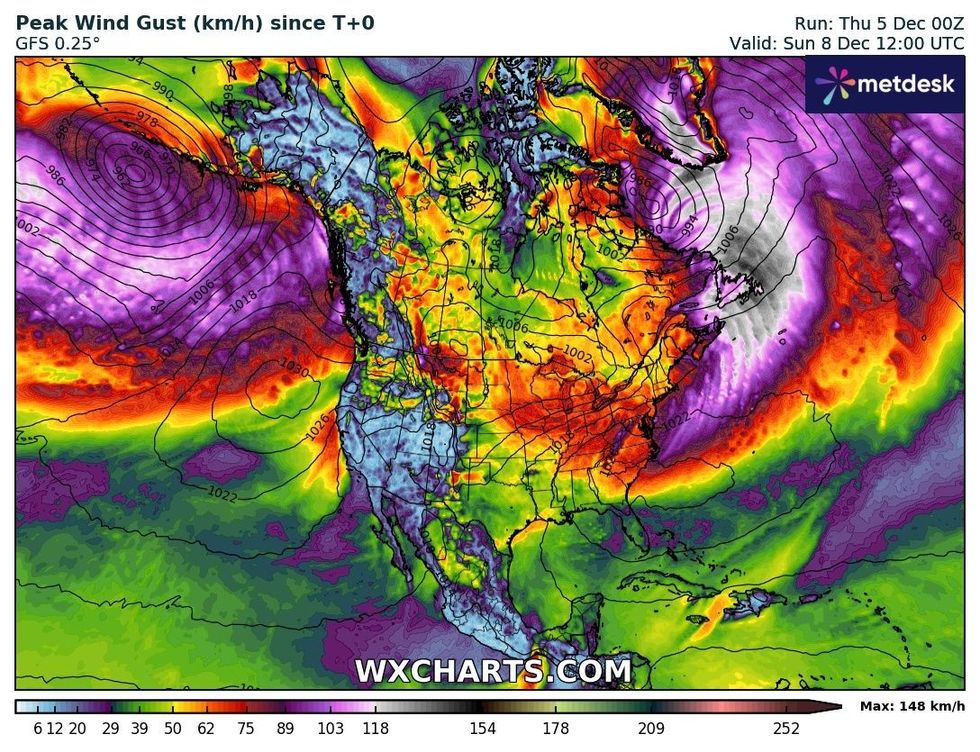
WXCHARTS has forecast strong wind gusts
|WXCHARTS
Further south, however, the risk will come from heavy rain with torrential downpours threatening floods.
The spokesman said: “A return flow off the Gulf of Mexico will create scattered showers and thunderstorms over parts of the West and Central Gulf Coast.
“Some of the rain will be moderate to heavy over parts of the Western Gulf Coast.
“The associated heavy rain will create localized areas of flash flooding, affecting areas that experience rapid runoff with heavy rain.
“Rain will also expand along the Eastern Gulf Coast into the Southeast on Thursday and into parts of the Southern High Plains Thursday night into Friday.”


